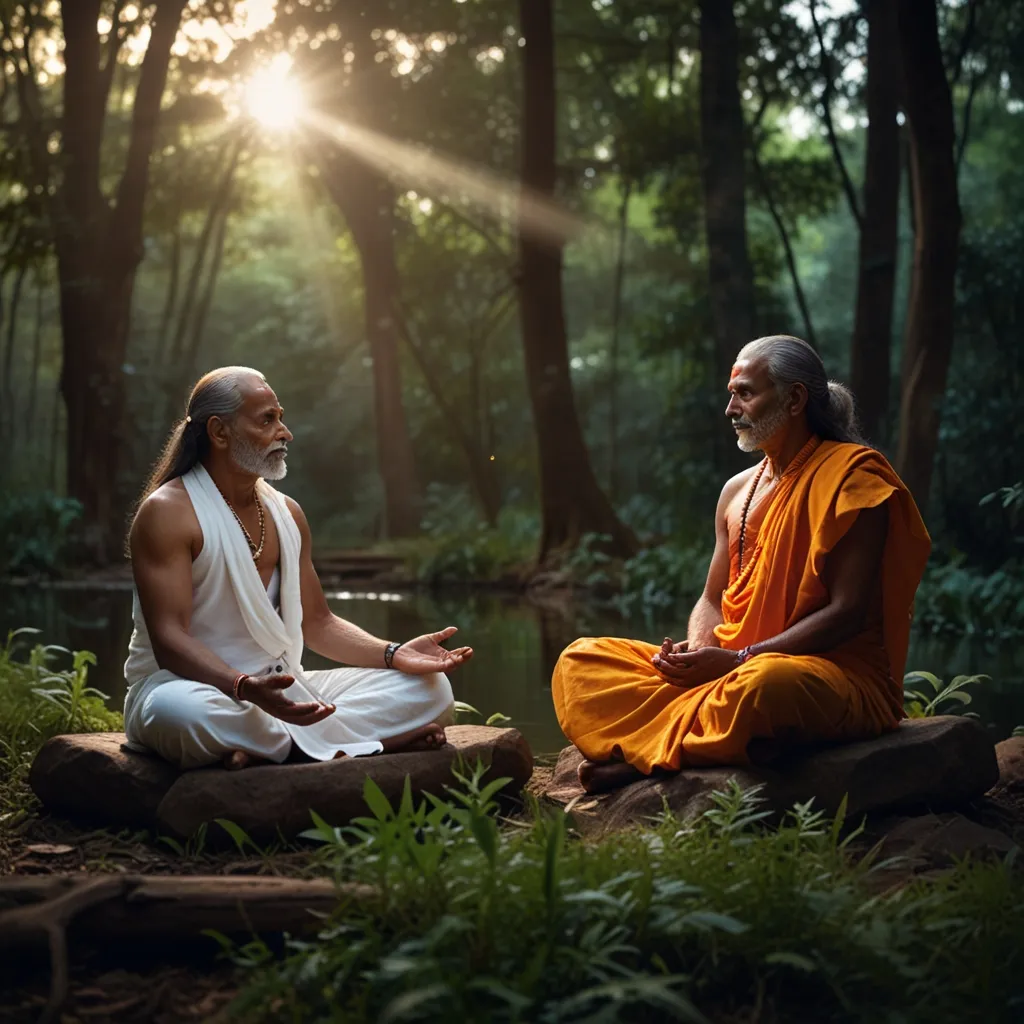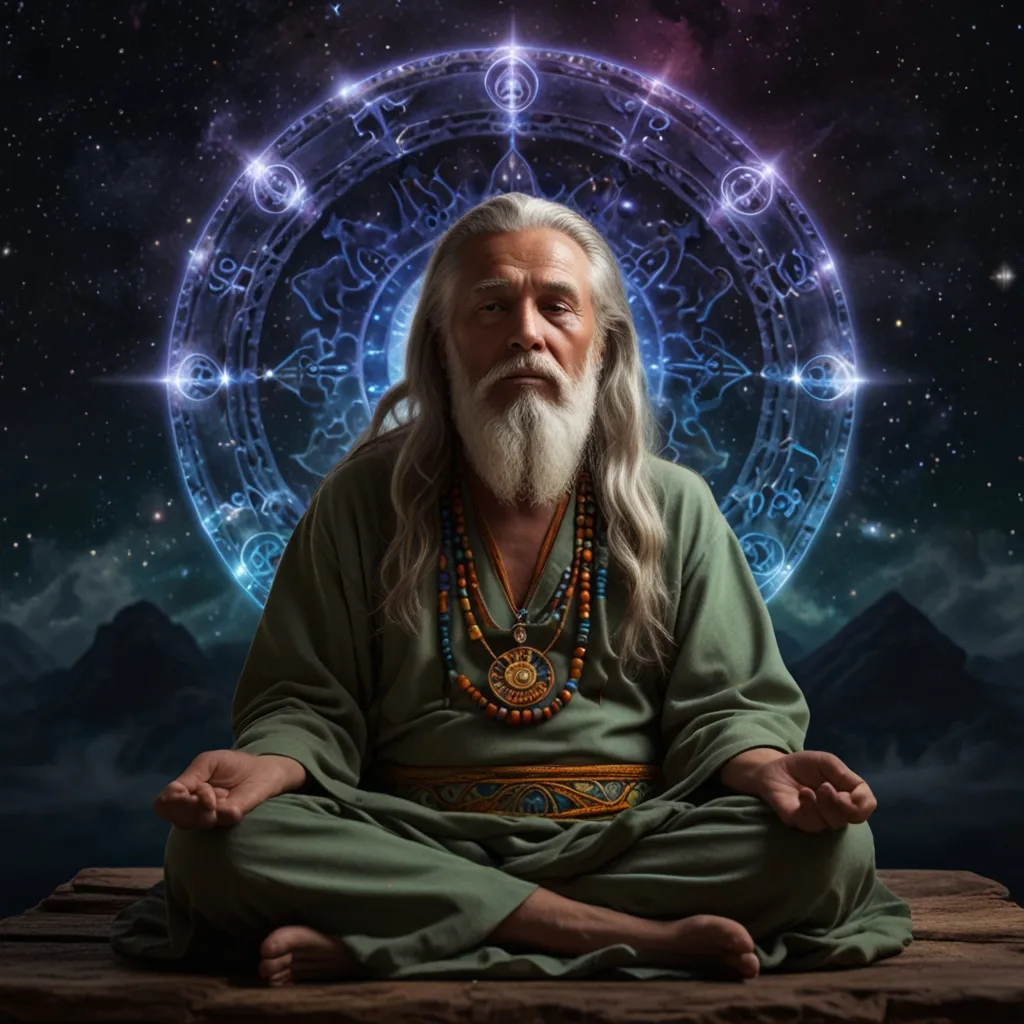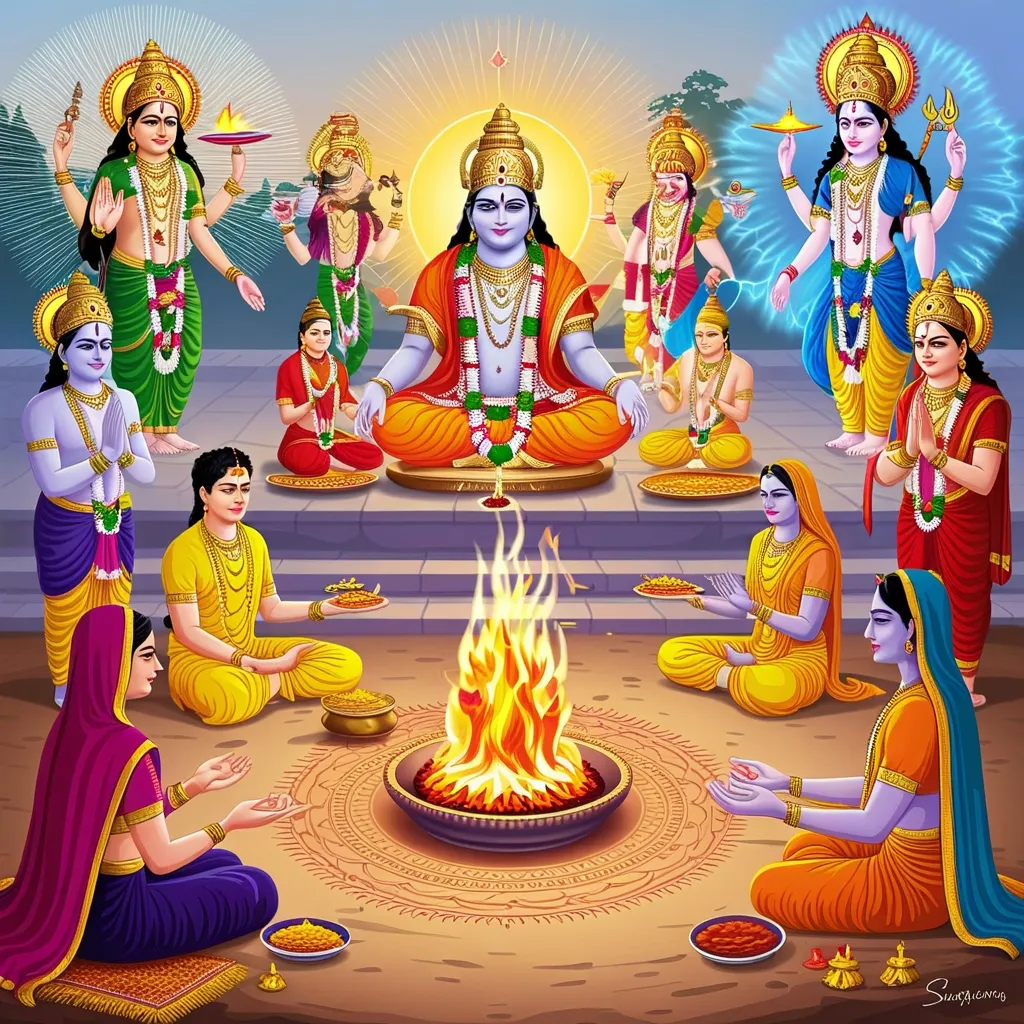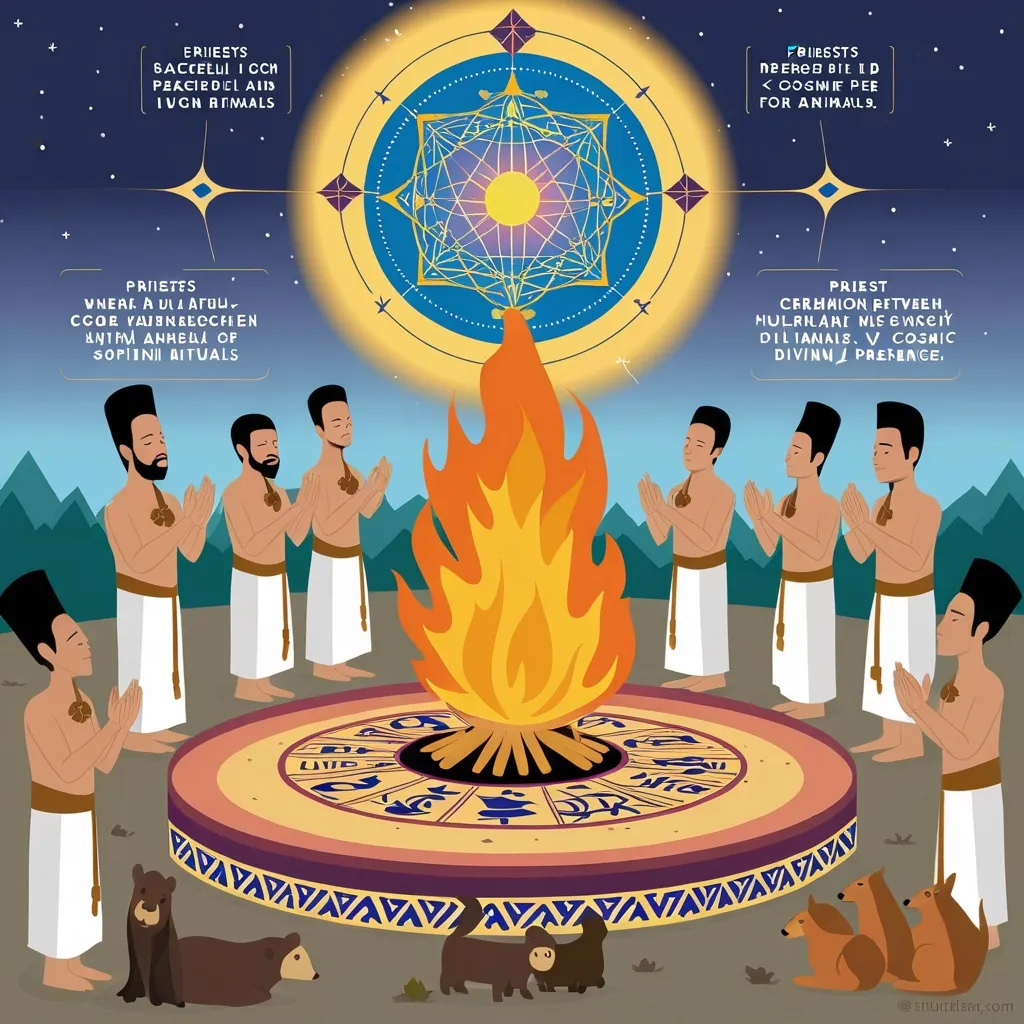The Upanishads are ancient Indian texts forming the backbone of Hindu philosophy. Think of them as the grand finale of the Vedas, diving deep into life’s biggest mysteries – like existence, consciousness, and the ultimate truth. The word “Upanishad” itself means “to sit down closely” or “secret teaching,” showing just how intimate and profound this knowledge is.
Historical Context
These texts popped up at a time when India was going through some big changes. Tribal communities were morphing into urban societies with monarchies. During this shift, people started searching for something more spiritual and philosophical. It was a time when mystics and forest dwellers began to seek truths beyond the usual Vedic rituals. The Upanishad authors were part of this quest, shifting focus from rituals to deep contemplation.
Core Concepts
Central to the Upanishads is the concept of Brahman – the ultimate reality, the soul of the universe. This unchanging essence underlies all life. Then there’s Atman, the individual soul or self. The Upanishads explore the connection between Atman and Brahman, hinting that the ultimate goal for us is to realize that our individual self is one with the universal self.
The Four Basic Principles
The Upanishads also present four key principles shaping Hindu thought: Dharma, Karma, Samsara, and Moksha. Dharma is about duty and responsibility, varying by one’s role, age, and gender. Karma is the idea that every action has an equal reaction, impacting future lives. Samsara is the cycle of birth, death, and rebirth driven by karma. Moksha is the liberation from this cycle, achieved through enlightenment and realizing our true self.
The Principal Upanishads
Among the numerous Upanishads, thirteen stand out as the principal ones. Names like the Brihadaranyaka Upanishad, the Chandogya Upanishad, and the Katha Upanishad come to mind. These texts explore the Atman-Brahman relationship, often through engaging dialogues between teachers and students. For instance, the Brihadaranyaka Upanishad talks about the soul’s immortality and the unity of all reality, while the Katha Upanishad tells of a young man named Nachiketa seeking knowledge from the god of death.
Influence of the Upanishads
The impact of the Upanishads on Hinduism and other religions in India is massive. They’ve shaped Jainism, Buddhism, and modern philosophical thought. Encouraging self-reflection and introspection, the Upanishads push readers to find answers to fundamental questions about existence. Their focus on personal spiritual growth and realizing the true self makes them timeless and universally relevant.
Legacy of the Upanishads
Even though they date back centuries, the Upanishads are still incredibly relevant. They inspire spiritual seekers and scholars, offering deep insights into reality and the human experience. More than just religious texts, they’re philosophical dialogues that provoke questions and encourage personal exploration. The Upanishads remind us that ultimate truth isn’t found in external rituals but within our own consciousness.






